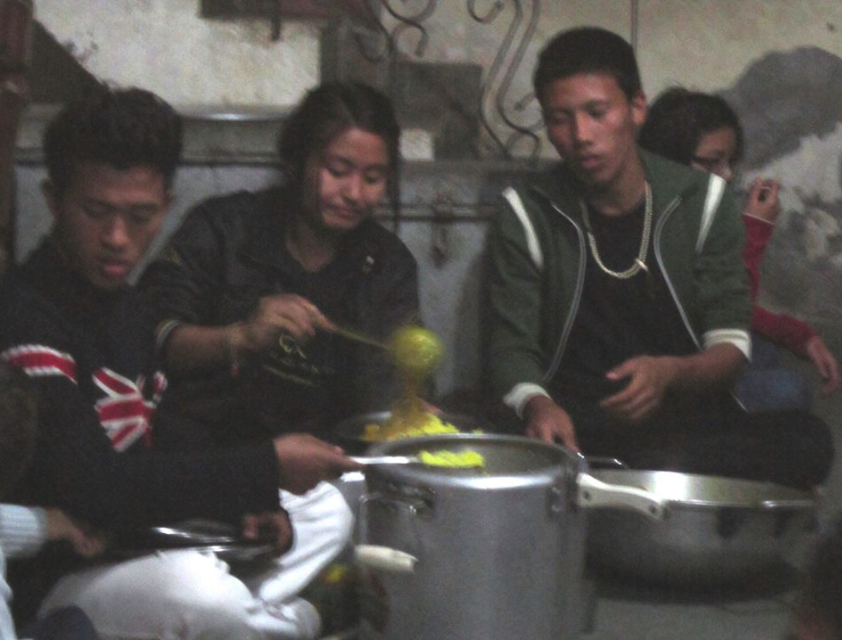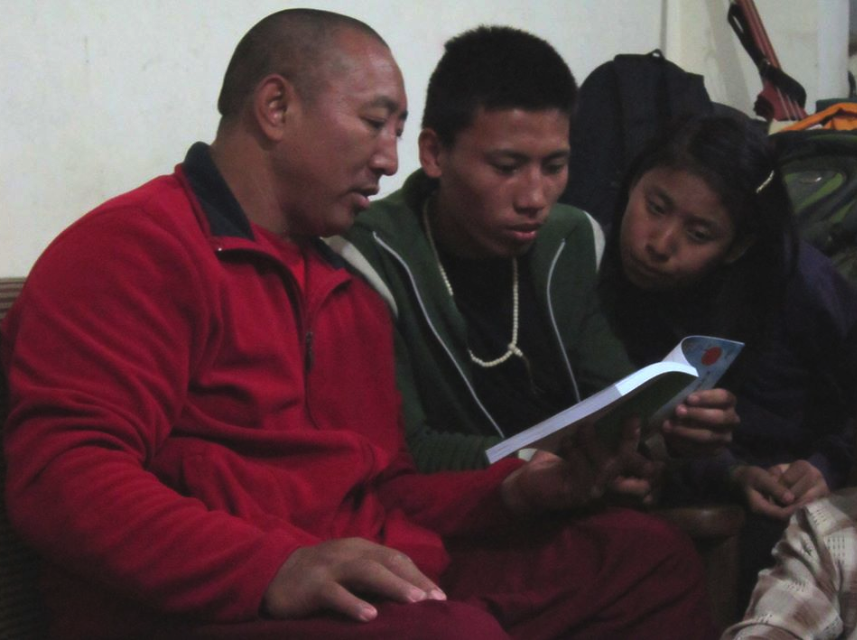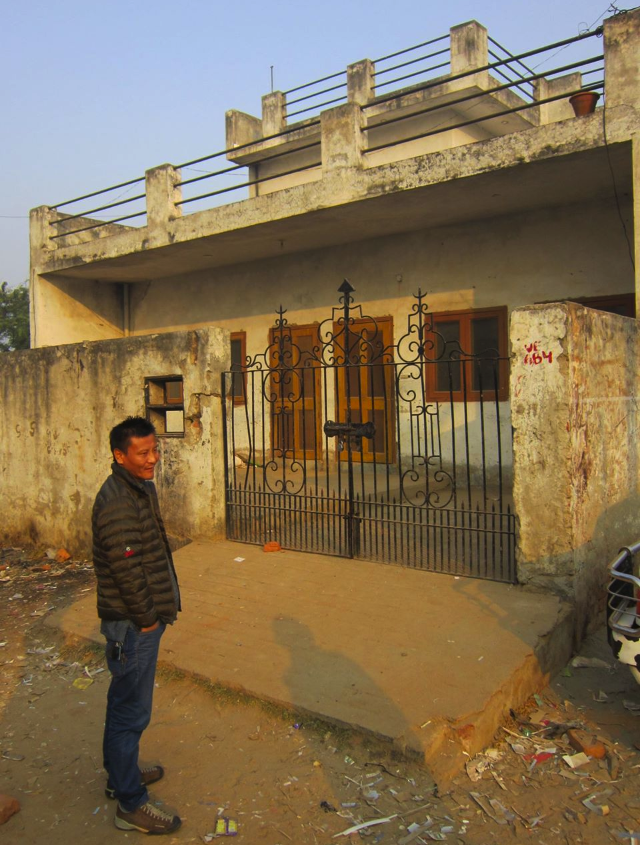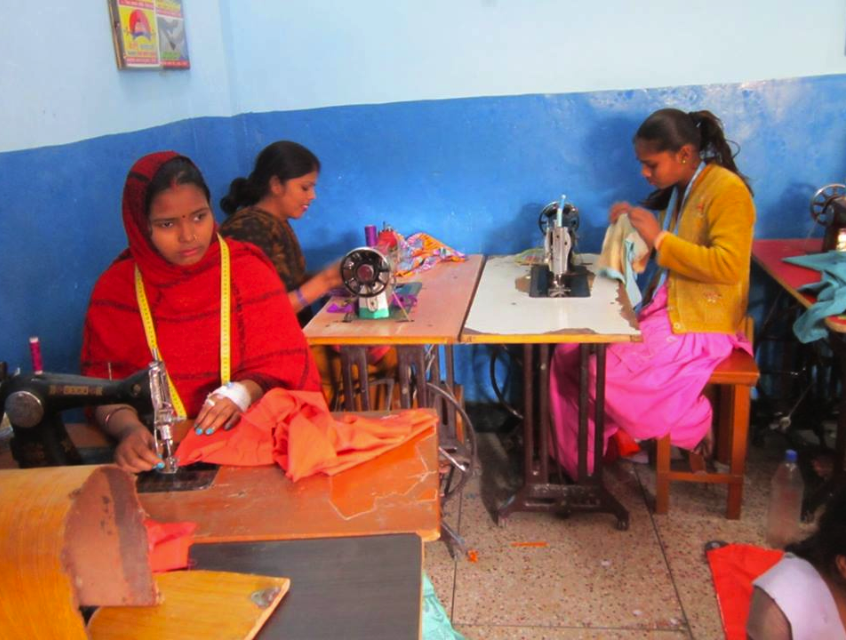Robin Cappuccino is currently traveling to all of the Child Haven homes – here are some thoughts from road.
Here in the Delhi area, Child Haven is the primary funder of two projects we-co-sponsor with local groups. The Maitreya Children’s Home for Tibetan refugee children in New Delhi is home to 24 children and the MVP Women’s Project is located just outside Delhi in Ghaziabad.
We arrived at the Children’s Home with some things we picked up for them on our recent visit to Tibet; some books in Tibetan, yak cheese, and powdered yak milk (actually it was “dri” cheese and milk I was politely told, dri being the word for female yak.) The kids were also fascinated with the photos I had just taken in Tibet. It is not clear if and when they will be able to go to Tibet on their own. They all speak Tibetan very well, and receive instruction in reading and writing Tibetan at the Home. The older kids had an easy time reading the novels and short stories we brought, the younger ones were more taken with the English picture books we also brought, but looked forward to being read the Tibetan stories. One of the older boys, Sonam Dhundup, serenaded us on the Tibetan guitar, which some college students from Tibet are teaching to some of the interested kids. Meals are begun with a Green Tara Blessing chanted in a mesmerizing spectrum of voices from high-pitched munchkin to the sub-base tones of Home Manager, Lama Tenzing. The children come from a variety of circumstances. One little girl’s father is a rickshaw driver, and her mother collects recycling from garbage. They just couldn’t afford to take care of her. A little boy now in grade 2’s mother died and his father, who cleans houses for a living couldn’t manage to care for him or send him to school.
We visited a property that we are trying to purchase for the Home with the help of a generous donation from a kind donor. This will cover the cost of the land, but funds to build a new building will need to be raised. The Home has been in rented facilities and has had to move numerous times. It is difficult to find land-lords willing to rent to children’s homes, so a permanent home will be a relief for all.

One of the hundreds of statues of Gandhi to be seen here. This one is a larger than life depiction of Gandhi, Kasturba his wife, and some of his key collaborators.
The MVP Program for women has trained some 8,000 women in tailoring over the last 10 years. These women then utilize this skill for repairing and making clothes for their families, or in finding employment doing tailoring for others. They come for 6 months and learn on the center’s 22 machines, some hand-cranked and some foot-treadle powered. A year ago or so, Child Haven purchased equipment to make low-cost sanitary napkins, which the center is also now producing. Six women are trained to produce the pads, and 5 are doing the marketing. The pads are much less costly than those found in the market making them accessible to more women. Lakshmi is one of the women making the pads. She graduated from the tailoring program, is doing some tailoring, and came back to work on this project. Her mother passed away, and she cares for her father, who is incapacitated, and her younger brother and sister. The project has also offered family planning training to some 50,000 women including a focus on the value of girl children, looked down upon in some parts of Indian society.
I asked Rajni, the coordinator of the project since it began what drew her to this work. Her answer was “Bonniema crosses 7 seas to visit and support us four times a year, how could I not do this work? Do you ask her why she does what she does?” A few more questions revealed that when she first moved to the area, it had very poor services, schools, water and other basic needs. So she started a women’s group to work on solving these problems. They went to government officials together, helped get ID cards and the like and she discovered the joy of working with and helping others. “I can make money anywhere, but this work gives tremendous satisfaction.” The saying “when women hold hands, all things are possible” comes to mind.
Until next time,
Robin Cappuccino for CHI
Stay tuned for more ‘thoughts from the road’ as Robin continues his journey through the CHI homes in India, Nepal, Bangladesh, and Tibet.










